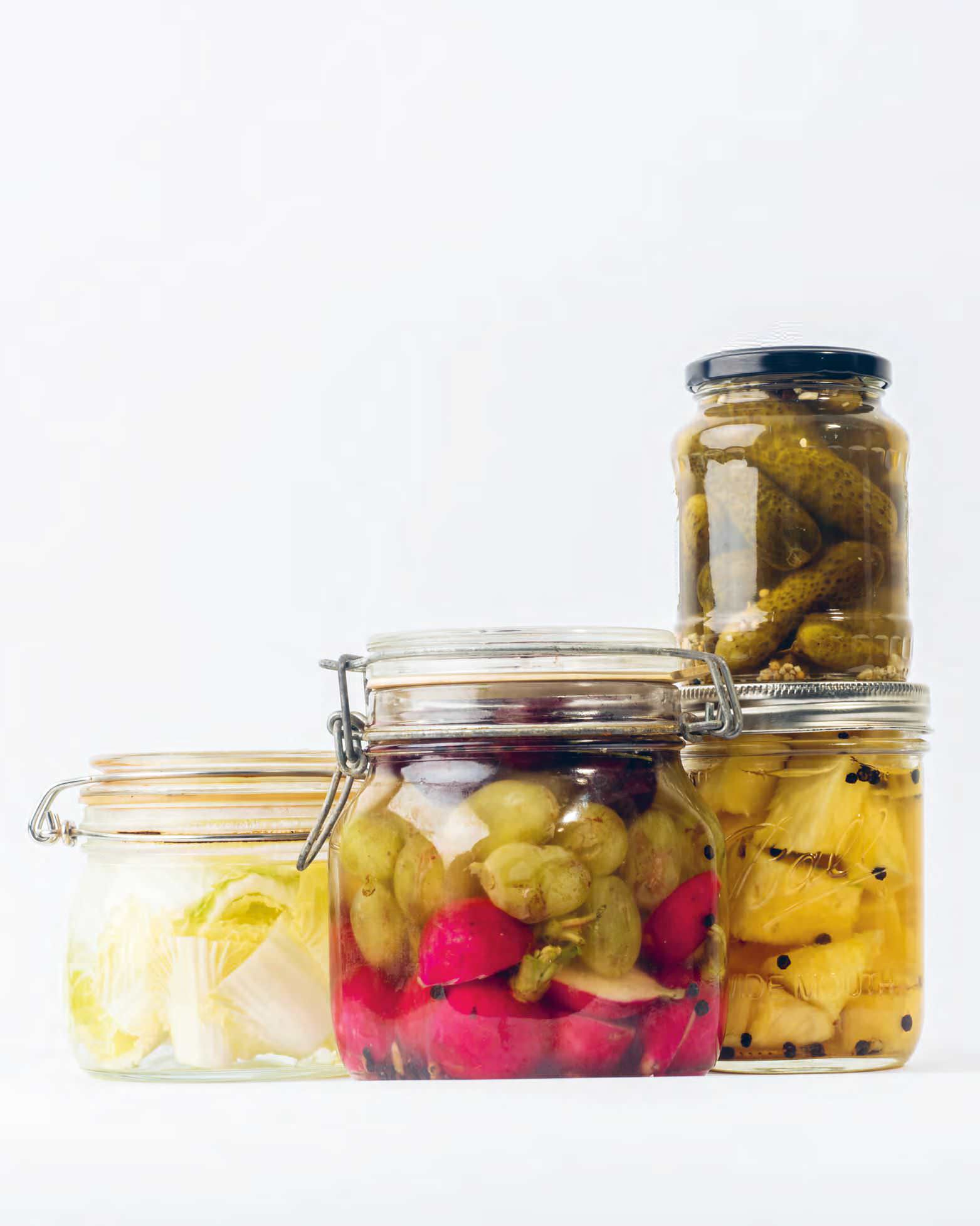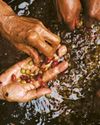Filipino Cuisine Boasts a Wide Array of Fermented Dishes That Define Our Food Culture

One of early man’s greatest discoveries—right up there with discovering fire—are the byproducts that microbes create. Fruit, honey, and grains get spontaneously converted into alcohols and acids, while animal and plant proteins turn into amino acids and peptides. The resulting stuff, when edible, usually had increased levels of protein, vitamins, and essential amino acids. People eventually developed a liking for the hallmark flavors of fermentation—savoriness, booziness, and sourness. In time, these byproducts became part of our culinary culture and had an impact on commerce.
Because our muggy equatorial existence lends itself to bacterial cacophony, fermentation on our tropical islands remains relatively basic (and mostly spontaneous), giving the Filipino regular access to vinegar, fish slurry, shrimp paste, palm wine, and many other pungent pleasures.
SAVORINESS
In our urban world of bouillons and bacon-on-demand, it might be difficult to understand the important role that savory, shelf-stable, ready-to-eat food and condiments play in pre-industrial or non refrigerated societies. They served as backbones for many beloved recipes, easily enriching broths or guisados due to their solubility. Just as importantly, they became, without additional preparation, integral parts of simple spreads around the country—flavorful side dishes that often stood as the main protein of the Filipino rural meal. This was especially invaluable to a people who consider a meal a meal so long as it has rice and something savory.
This story is from the Volume 14 No 4 edition of F&B Report.
Start your 7-day Magzter GOLD free trial to access thousands of curated premium stories, and 9,000+ magazines and newspapers.
Already a subscriber ? Sign In
This story is from the Volume 14 No 4 edition of F&B Report.
Start your 7-day Magzter GOLD free trial to access thousands of curated premium stories, and 9,000+ magazines and newspapers.
Already a subscriber? Sign In

Regional Picks
Hard-to-get food products are now within reach as a young startup brings edible finds from the provinces to the capital.

Time To Engage
If the customers want to leave more money on the table, then why is the industry allowing them to walk out the door?

Earth Bound
Despite its divisive principles, biodynamic farming could be a solution to the heavy price of industrial agriculture.

Bitter Beans
The coffee may be good, but the plight of farmers continues to leave a bitter taste in the mouth.

Sustainable Spaces
Resorts, no matter how distant from the city, are hoping guests will appreciate a lighter carbon ootprint and produce harvested from their backyard.

Break Line
Nitro-charged Horchata, Handcrafted Chocolate, Fresh Smoothie Bowls, and a Retro Boutique Hostel Are Driving the F&b Boom in LA Union.

Seasons Of Taste
Whatever Dish Is on the Table, Mccormick Seasoning Blends Will Take You on a Palatable Journey

A Taste Of Tomorrow
Influential Trend Forecaster Cécile Poignant on the Lifestyle Factors That Will Shape the Hospitality and Travel Industry

Long Time Coming
At the Heart of Josh Boutwood's Career Is the Rise and Fall of a Fragile Relationship With Himself, His Family, and an Exhilarating Future That People Are Finally Taking Notice

Vegan Chocolate
Chocolates Are for Everybody. Yes, Even Those With Strict Diet Restrictions